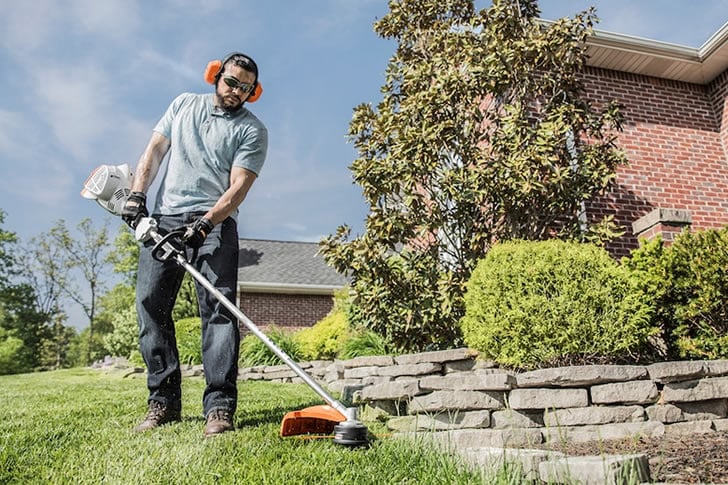Achieve Perfection with Professional Lawn Care and Maintenance Expertise
Achieving a lush, green lawn requires specialized knowledge. This guide offers expert tips on professional lawn care, maintenance, and expertise to transform your yard into a picturesque landscape.

Understanding Professional Lawn Care
Professional lawn care involves regular tasks like mowing, watering, and fertilizing. However, expertise in identifying issues like pests, diseases, and soil health significantly elevates the quality of care.
1. Soil Testing and Preparation
Begin with a soil test to understand the pH level and nutrient content. Professionals often recommend adjusting the pH and adding necessary amendments like lime or sulfur to create optimal soil conditions.
2. Choosing the Right Grass
Different grass types thrive in various climates and soil conditions. Consult a professional to select species top suited to your location—whether it's cool-season grasses like Kentucky bluegrass or warm-season ones like Bermuda.
Maintenance: A Year-Round Commitment
Lawn maintenance is not just a summer activity—it requires year-round attention. Here’s a seasonal breakdown for comprehensive care.
Spring: The Season of Revival
Dethatching and Aeration
Over time, your lawn can accumulate thatch—a layer of dead grass and roots. Dethatching removes this, while aeration punctures the soil to allow water, nutrients, and air to reach the roots.Fertilization
Apply a slow-release fertilizer in early spring to kick-start growth. Professional expertise ensures the right balance of nutrients—typically high in nitrogen for leafy green growth.Seeding
Overseeding fills in bare patches and promotes a dense lawn. Experts recommend using a high-quality seed blend suitable for your grass type.Summer: The Season of Vigilance
Mowing Practices
Mow regularly, keeping the mower blade sharp and adjusting cutting height based on grass type. Experts advise never cutting more than one-third of the grass blade at once.Water Management
Water deeply but infrequently to encourage deep root growth. Professionals have the expertise to set irrigation systems on an optimal schedule, preventing overwatering or underwatering.Pest Control
Summer is prime time for pests. Use professional-grade pesticides or organic alternatives and monitor closely for signs of infestation.Fall: Preparation for Dormancy
Fertilization
A fall application of fertilizer promotes root growth and prepares the lawn for winter dormancy. Experts prefer a high-potassium formula for winter hardiness.Leaf Removal
Regularly remove fallen leaves. Left unmanaged, they can suffocate the grass and create a breeding ground for pests and diseases.Overseeding and Aeration
Fall is also an excellent time for another round of overseeding and aeration, setting the stage for spring growth.Winter: Rest but Don’t Neglect
Minimize Traffic
Dormant grass can be easily damaged. Professional lawn care advice often includes minimizing foot traffic to avoid compaction and breakage.Snow Management
Use eco-friendly ice melts and be cautious when shoveling to avoid damaging the lawn.Expertise in Issue Resolution
Professional expertise is crucial for diagnosing and remedating lawn problems. Here are common issues and how experts handle them.
1. Weeds
Weeds compete with grass for nutrients and water. Professionals use pre-emergent herbicides in spring and post-emergent herbicides during the active growth season for control.
2. Diseases
Lawn diseases like fungus or rust can quickly spread. Experts identify signs early and apply fungicides or cultural practices to mitigate these issues.
3. Insects
Grubs, chinch bugs, and other insects can wreak havoc on your lawn. Professional pest management includes both chemical and biological treatments to keep these pests at bay.
Advanced Professional Lawn Care Techniques
1. Irrigation Systems
Installing an automated irrigation system ensures your lawn gets the right amount of water. Professionals can design and install systems with efficient zonal coverage and smart controllers.
2. Organic Lawn Care
Many homeowners are turning to organic lawn care. Pros can recommend organic fertilizers, pest controls, and other eco-friendly practices that maintain lawn health without harmful chemicals.
3. Landscaping Integration
Professionals often integrate lawn care with overall landscape management. This can include the placement of plants, trees, and hardscapes, ensuring a cohesive and sustainable yard design.
Conclusion
Incorporating professional lawn care, maintenance, and expertise can turn an average yard into a stunning landscape. With proper soil preparation, seasonal maintenance, and expert problem resolution, your lawn will be the envy of the neighborhood all year round.









